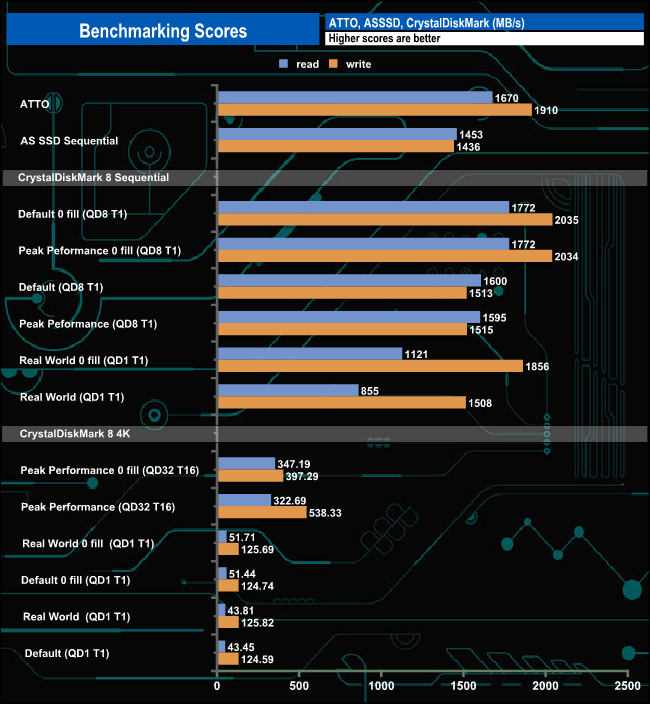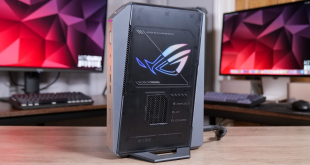Out of the box, the drive is factory formatted as exFAT. To run some of our benchmarks, we reformatted the drive to NTFS. To test the drive, we used a Gigabyte GC-USB 3.2 Gen2X2 (rev 1.1) expansion card. Many thanks to Gigabyte for supplying us with the card.
CrystalDiskMark is a useful benchmark to measure the theoretical performance levels of hard drives and SSDs. We are using V8.
The ATTO Disk Benchmark performance measurement tool is compatible with Microsoft Windows. Measure your storage system's performance with various transfer sizes and test lengths for reads and writes. Several options are available to customise your performance measurement, including queue depth, overlapped I/O and even a comparison mode with the option to run continuously. Use ATTO Disk Benchmark to test any manufacturer's RAID controllers, storage controllers, host adapters, hard drives and SSD drives and notice that ATTO products will consistently provide the highest level of performance to your storage.
AS SSD is a great free tool designed just for benchmarking Solid State Drives. It performs an array of sequential read and write tests, as well as random read and write tests with sequential access times over a portion of the drive. AS SSD includes a sub suite of benchmarks with various file pattern algorithms, but this is difficult in trying to judge accurate performance figures.
The maximum Sequential read/write performance figures for the Datamag 20Gbps are up to 1,600MB/s and 1,500MB/s, respectively. Using our test setup with the ATTO benchmark, the best we saw from the drive was 1,670MB/s for reads and 1,910MB/s for writes, both better than the official maximums. The fastest performance we saw from the drive came from testing the drive with the CrystalDiskMark 8 benchmark (using compressed data) with reads at 1,772MB/s and writes at 2,034MB/s, again faster than the official figures.
As for 4K random performance, the best read figure came during the Peak Performance run (using compressed data with a QD of 32 and using 16 threads) at 347.19MB/s. The best write figure, 538.33MB/s, came again during a Peak Performance run (QD of 32, 16 threads). More realistic everyday figures came from the QD1 T1 test, with the best read figure of 51.71MB/s with writes at 125.82MB/s.
 KitGuru KitGuru.net – Tech News | Hardware News | Hardware Reviews | IOS | Mobile | Gaming | Graphics Cards
KitGuru KitGuru.net – Tech News | Hardware News | Hardware Reviews | IOS | Mobile | Gaming | Graphics Cards



